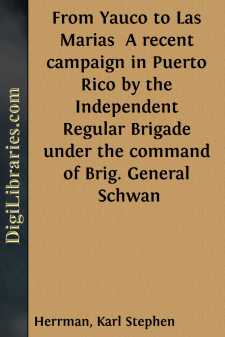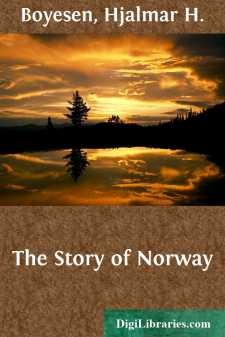History
- Africa 30
- Americas (North Central South West Indies) 50
- Ancient 68
- Asia 58
- Australia & New Zealand 8
- Canada 41
- Caribbean & West Indies 1
- Civilization 20
- Eastern Europe 12
- Europe 310
- Expeditions & Discoveries 60
- General 77
- Historical Geography 1
- Jewish 9
- Latin America 3
- Medieval 8
- Middle East 13
- Military 248
- Revolutionary 8
- Study & Teaching 5
- United States 353
- Western Europe 56
- World 13
History Books
Sort by:
INAUGURAL LECTURE ON THE STUDY OF HISTORY Delivered at Cambridge, June 1895 FELLOW STUDENTS—I look back today to a time before the middle of the century, when I was reading at Edinburgh and fervently wishing to come to this University. At three colleges I applied for admission, and, as things then were, I was refused by all. Here, from the first, I vainly fixed my hopes, and here, in a happier hour,...
more...
CHAPTER I INTRODUCTION Outside pure Naval history it would be difficult to find any period so full of incident and contest as that which is covered by the exploits of the English Preventive Service in their efforts to deal with the notorious and dangerous bands of smugglers which at one time were a terrible menace to the trade and welfare of our nation. As we shall see from the following pages, their...
more...
by:
Andrew Johnson
Fellow-Citizens of the Senate and House of Representatives: To express gratitude to God in the name of the people for the preservation of the United States is my first duty in addressing you. Our thoughts next revert to the death of the late President by an act of parricidal treason. The grief of the nation is still fresh. It finds some solace in the consideration that he lived to enjoy the highest...
more...
CHAPTER I The Independent Regular Brigade Place of meetingвÐâForces comprised by the commandвÐâWhy we were not like the VolunteersвÐâCharacteristics of the professional soldierвÐâSketches of the more important officersвÐâWhat we were ordered to do. Yauco, the place selected by General Miles as a rendezvous for the troops of the Independent Regular...
more...
CHAPTER I. In perusing the following pages, the reader will learn the history of a class of men, who, for talent, cannot be excelled. He may startle at the horrid features which naked truth will depict—at deeds of darkness which, though presented to an enlightened people, may require a stretch of credulity to believe were ever perpetrated in the glorious nineteenth century. It will, no doubt, elicit...
more...
by:
Robert Herrick
I Italy Hesitates Last April, when I left New York for Europe, Italy was "on the verge" of entering the great war. According to the meager reports that a strict censorship permitted to reach the world, Italy had been hesitating for many months between a continuance of her precarious neutrality and joining with the Allies, with an intermittent war fever in her pulses. It was known that she was...
more...
PREFACE. It has been my ambition for many years to write a history of Norway, chiefly because no such book, worthy of the name, exists in the English language. When the publishers of the present volume proposed to me to write the story of my native land, I therefore eagerly accepted their offer. The story, however, according to their plan, was to differ in some important respects from a regular...
more...
CHAPTER I INTRODUCTORY REFLECTIONS The bursting of a thunderstorm is preceded by certain definite phenomena in the atmosphere. The electric currents separate, and the storm is the result of atmospheric tension which can no longer be repressed. Whether or no we become aware of these happenings through outward signs, whether the clouds appear to us more or less threatening, nothing can alter the fact...
more...
by:
Anthony Hamilton
OTHER LOVE INTRIGUES AT THE ENGLISH COURT. The conversation before related was agreeable only to Miss Hobart; for if Miss Temple was entertained with its commencement, she was so much the more irritated by its conclusion this indignation was succeeded by the curiosity of knowing the reason why, if Sidney had a real esteem for her, she should not be allowed to pay some attention to him. As soon as they...
more...
CHAPTER I. Cromwell is sick unto death.—Fears and suspicions.—Killing noMurder.—A memorable storm.—The end of all.—Richard Cromwellmade Protector.—He refuses to shed blood.—Disturbance anddissatisfaction.—Downfall of Richard.—Charles Stuart proclaimedking.—Rejoicement of the nation.—The king comes into his own.—Entryinto London.—Public joy and satisfaction. On the 30th of...
more...











